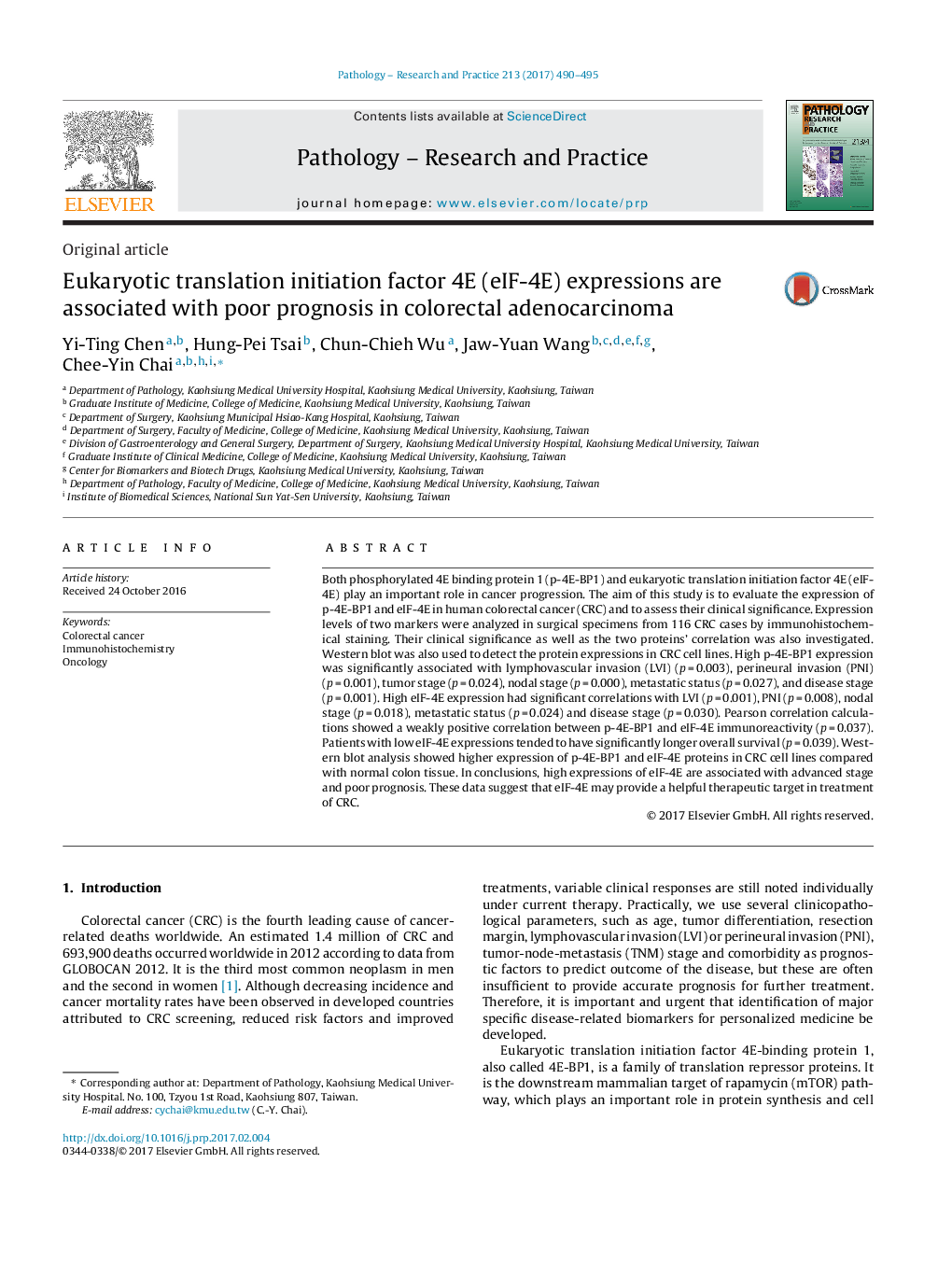| Article ID | Journal | Published Year | Pages | File Type |
|---|---|---|---|---|
| 5529215 | Pathology - Research and Practice | 2017 | 6 Pages |
Both phosphorylated 4E binding protein 1 (p-4E-BP1) and eukaryotic translation initiation factor 4E (eIF-4E) play an important role in cancer progression. The aim of this study is to evaluate the expression of p-4E-BP1 and eIF-4E in human colorectal cancer (CRC) and to assess their clinical significance. Expression levels of two markers were analyzed in surgical specimens from 116 CRC cases by immunohistochemical staining. Their clinical significance as well as the two proteins' correlation was also investigated. Western blot was also used to detect the protein expressions in CRC cell lines. High p-4E-BP1 expression was significantly associated with lymphovascular invasion (LVI) (p = 0.003), perineural invasion (PNI) (p = 0.001), tumor stage (p = 0.024), nodal stage (p = 0.000), metastatic status (p = 0.027), and disease stage (p = 0.001). High eIF-4E expression had significant correlations with LVI (p = 0.001), PNI (p = 0.008), nodal stage (p = 0.018), metastatic status (p = 0.024) and disease stage (p = 0.030). Pearson correlation calculations showed a weakly positive correlation between p-4E-BP1 and eIF-4E immunoreactivity (p = 0.037). Patients with low eIF-4E expressions tended to have significantly longer overall survival (p = 0.039). Western blot analysis showed higher expression of p-4E-BP1 and eIF-4E proteins in CRC cell lines compared with normal colon tissue. In conclusions, high expressions of eIF-4E are associated with advanced stage and poor prognosis. These data suggest that eIF-4E may provide a helpful therapeutic target in treatment of CRC.
